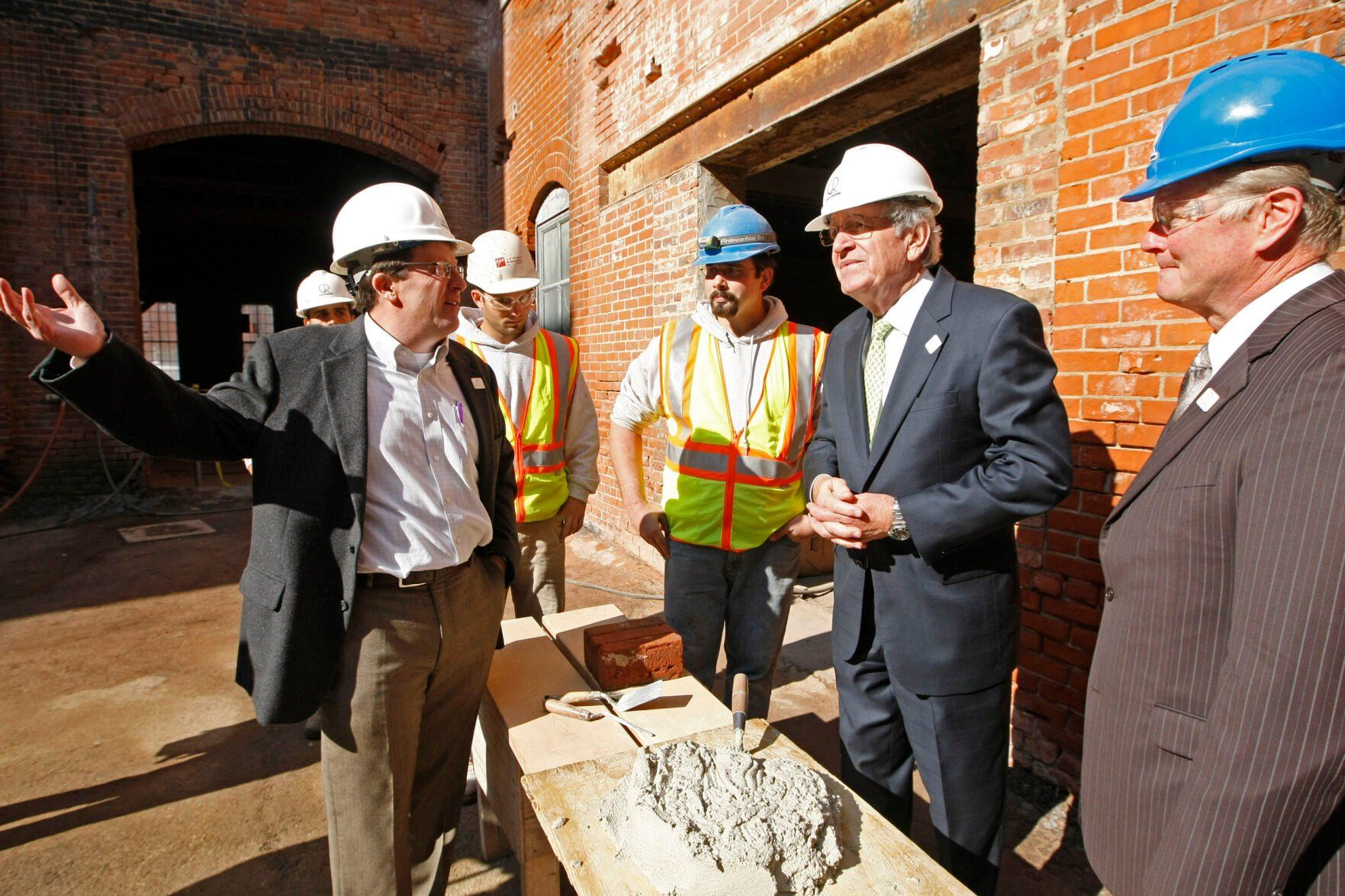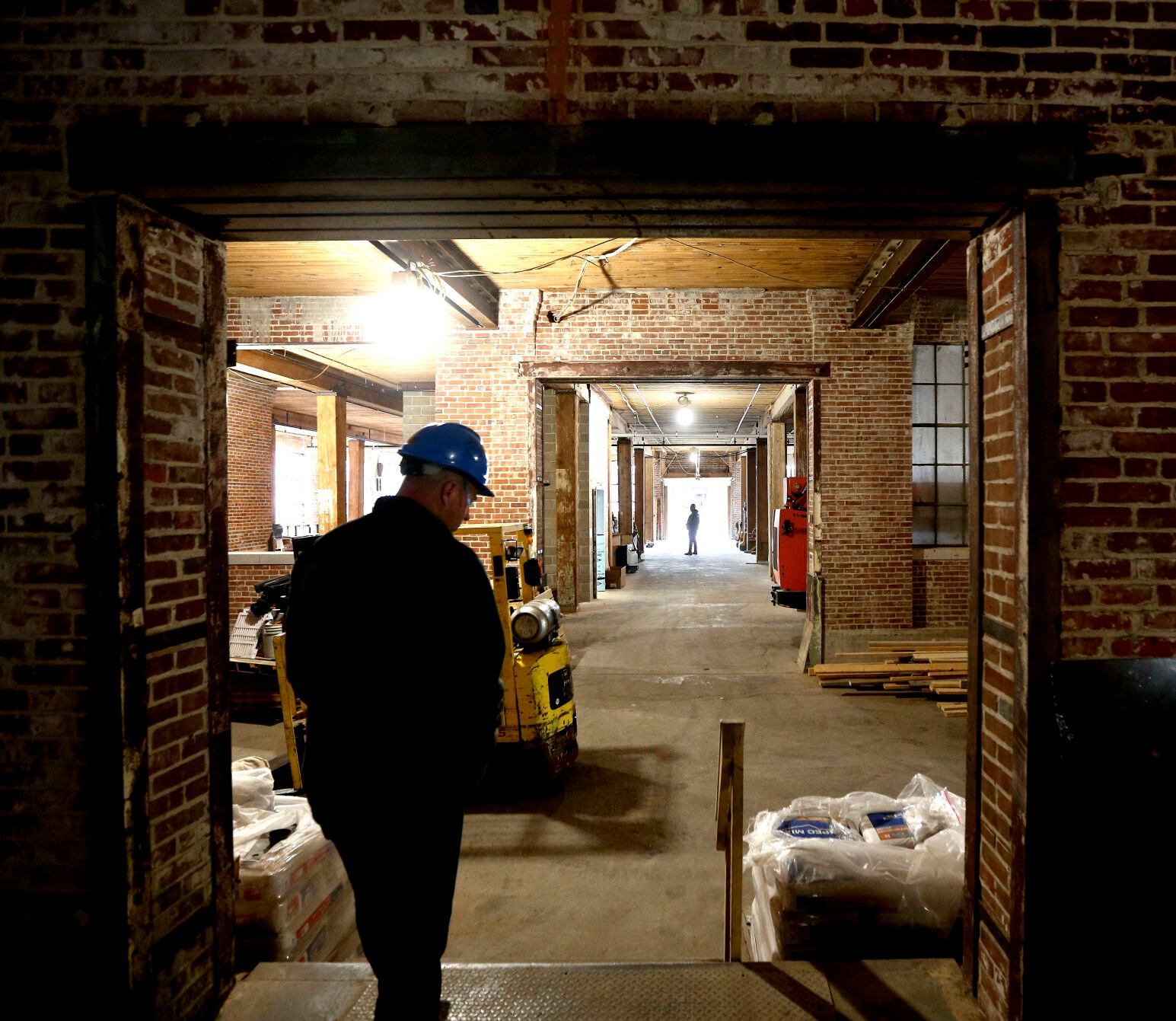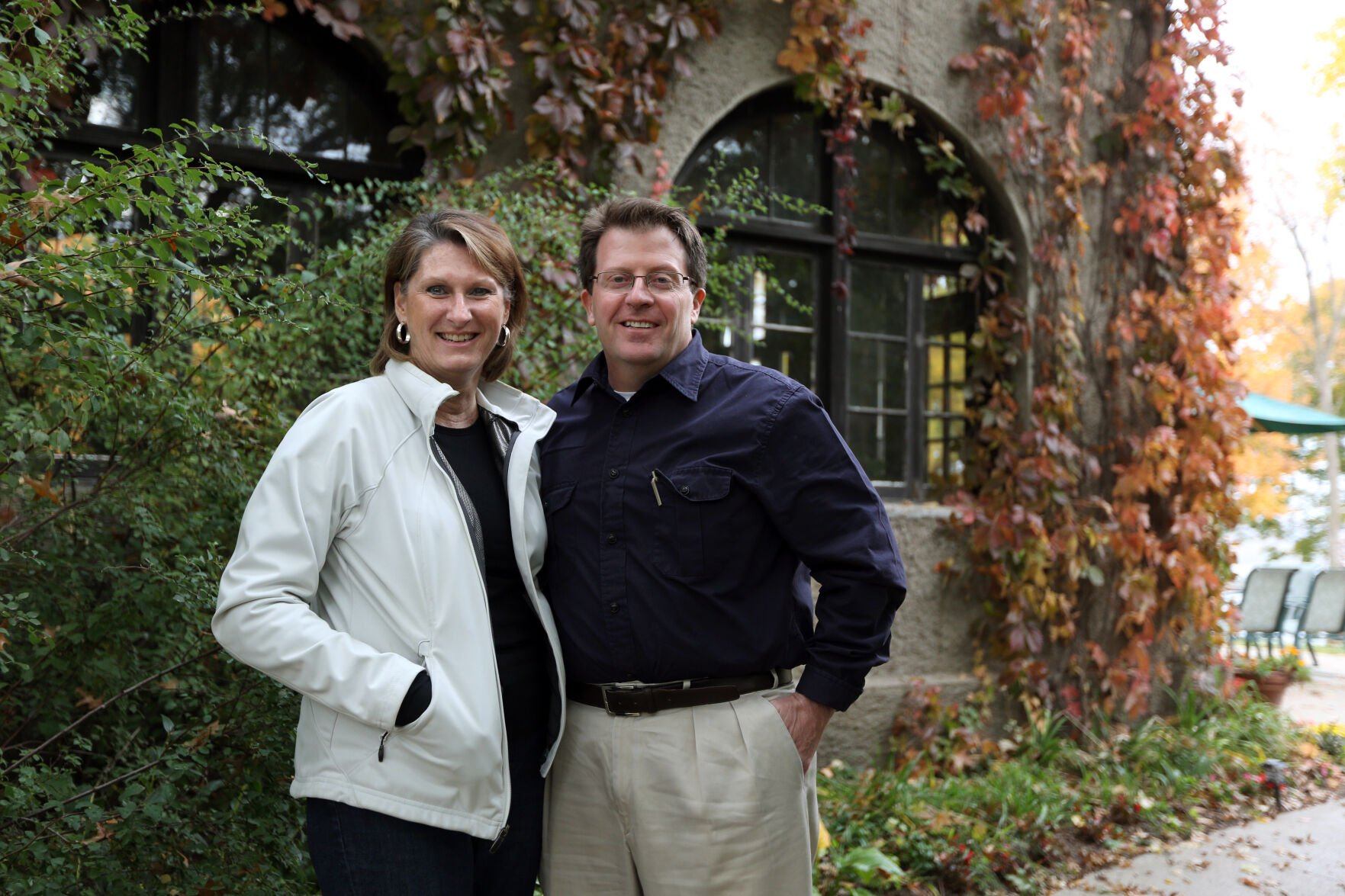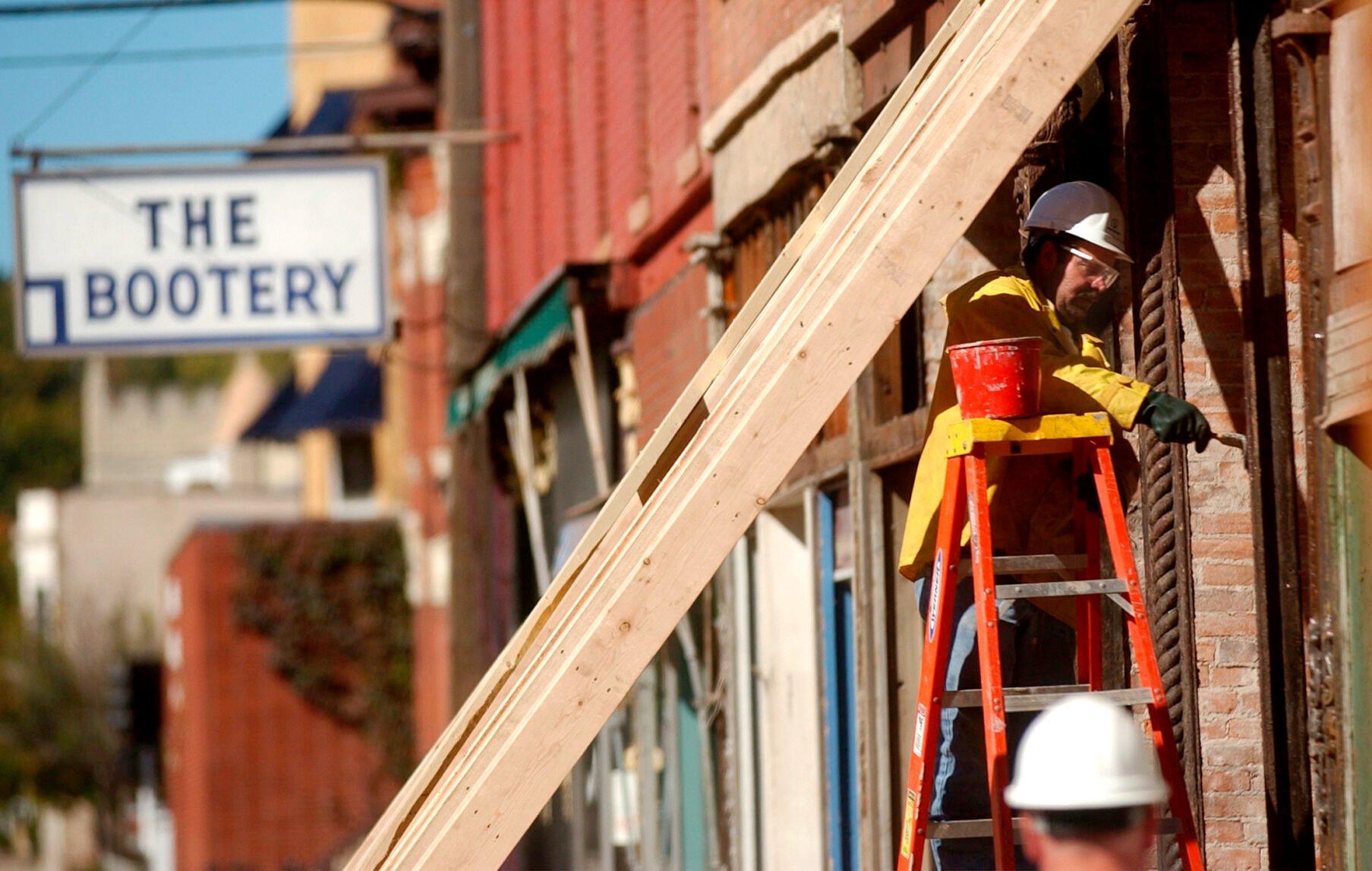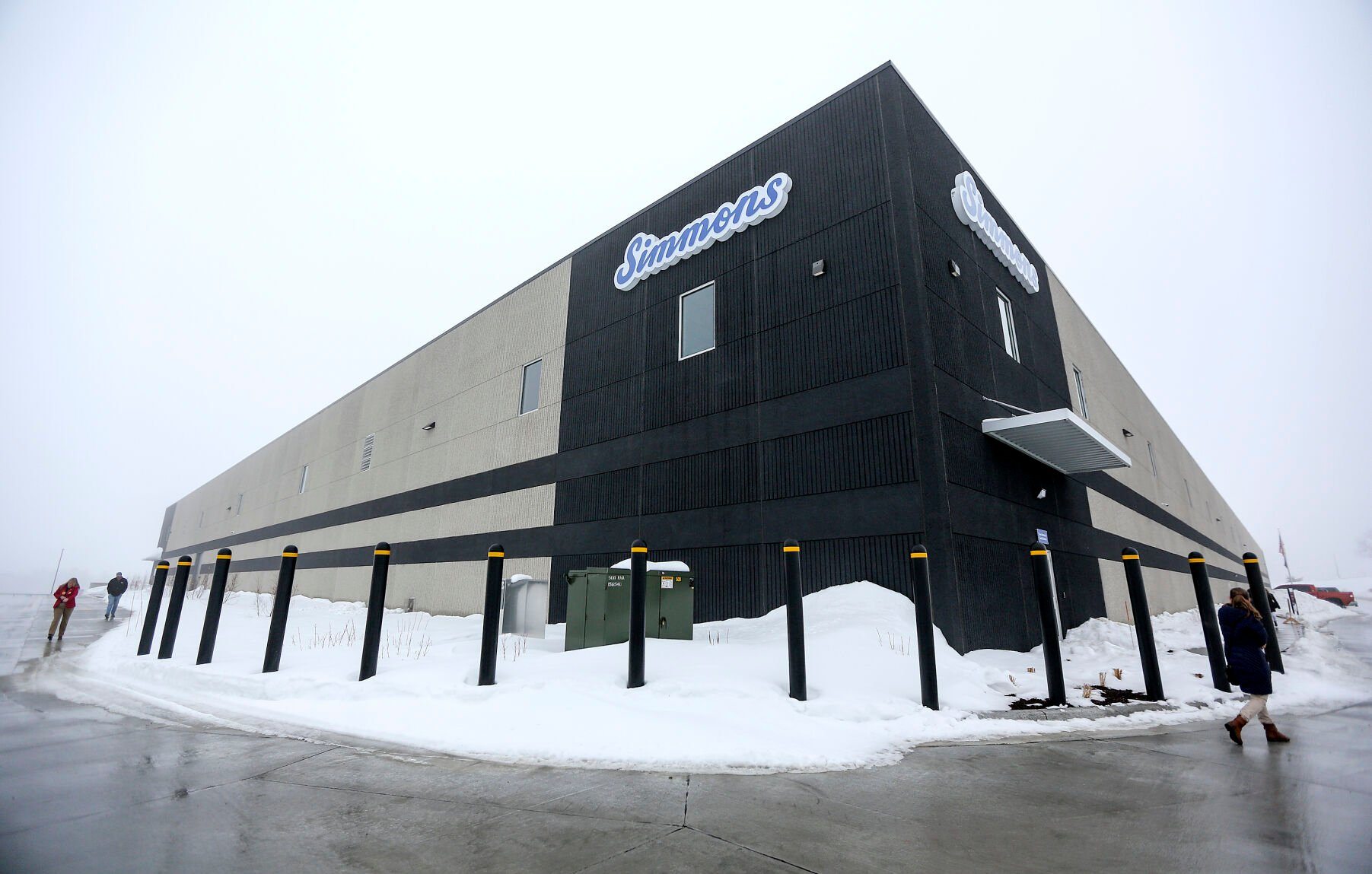Over the past quarter of a century, a Dubuque development company has proven that great things can start small.
This year marks the 25th anniversary of Gronen, a company known for its ambitious restoration projects and myriad contributions to Dubuque’s urban core.
Gronen leaders have left fingerprints on some of the largest area restoration projects in recent history, but it all started in the early 1990s when John and Mary Gronen curated a small team to rehabilitate homes in the Washington neighborhood.
By 1999, the company took on the Gronen name under which it operates today, and the business now has roughly 60 employees between Gronen Restoration, Gronen Properties, Gronen Development and DBQ Property Group, which is Gronen’s real estate division.
“Our growth was always very organic,” said Vice President Mary Gronen. “We didn’t sit down and mark out exactly where we wanted to be in 25 years. … We just kept working, and it just kept growing.”
In 2001, Gronen acted as the developer and project manager for the restoration of Dubuque’s Town Clock building at 825 Main St. alongside building owner John Butler. The commercial project transformed the vacant building into a high-end, modern office space.
Bolstered by that project’s success, the company turned its sights onto the nearby 1000 block of Main Street, where Gronen in 2005 began the process of revitalizing half a city block.
Many of the businesses along that stretch of Main Street had been vacant for nearly 20 years, and the upper-level residential units had been empty even longer. Despite the buildings’ wayward condition, John and Mary Gronen saw potential.
“Initially, we had only purchased two buildings … but we thought ‘Oh my gosh, if we’re going to put all this time, energy and financial resources into this, what does it mean for the rest of the block to not look great,’” Mary Gronen said. “And that’s how two buildings turned into six.”
In the span of two years, Gronen staff painstakingly restored the six buildings along the northern part of the block into 14 historic storefronts that now include area businesses such as River Lights Bookstore, Jitterz Coffee and L.May Eatery.
There also are 30 high-quality apartments on the upper level of those buildings aimed at providing attainable housing to Dubuque’s workforce.
Dubuque Main Street Executive Director Danielle Jacobs said the project was a catalyst for many more improvements to downtown Dubuque, adding that the city is “lucky” to have a local developer open to taking on such large projects.
“The work (Gronen) did in the 1000 block of Main really showed that with commitment, effort and work that not only is historic preservation possible, but that it also can set the tone for the bigger picture of the downtown,” Jacobs said.
She added that the historic nature of downtown Dubuque has the dual benefit of increasing vitality and livability for local residents while also acting as a tourist attraction for people interested in exploring historic architecture.
Gronen has worked on several notable church restorations with similar historic appeal, including an award-winning restoration of Steeple Square on White Street and First Congregational Church on 10th Street.
The company also has made a name for itself in new construction, acting as the developer and project manager for a $24.5 million, nearly 253,000-square-foot warehouse on Seippel Road constructed by Gronen and now leased by Simmons Pet Food.
One place that is particularly and practically inextricable from the Gronen name, however, is the Historic Millwork District. Once a bustling manufacturing center, the area previously known as the Warehouse District was left largely vacant by the late 20th century.
The large, historic structures remained, but without the bustling signs of life that marked the once busy hub. By 2005, the redevelopment of the district had become a city priority, but the question remained as to who would take the first leap on such a major project.
Eventually, Gronen stepped up.
“We didn’t really want to be the first ones out the chute … but it didn’t look like any of the other building owners were going to start, so we decided to go ahead and be the first,” Mary Gronen said. “It turned into a wonderful partnership.”
The company first restored the CARADCO building, which actually comprised six buildings formerly used by the now-shuttered Carr, Adams & Collier Company. The project took up an entire city block and is now home to a mix of commercial and residential units.
Work on the project began in 2012, and from the start Gronen leaders realized the project’s importance.
“If we get this right, on the first building, then we’re going to set the tone for the rest of the district,” John Gronen told the Telegraph Herald in a 2013 interview. “If we don’t, and we just do mostly residential, we’re going to have a sleepy little project.”
And so far, the project has been a roaring success. The three-story Schmid Innovation Center/CARADCO Lofts is home to numerous commercial and business entities and acts as homebase for several local nonprofits. The rental units also are at full capacity with a waitlist.
In 2015, Gronen completed the development of the nearby Linseed Oil & Paintworks building to offer 16 rental units. Then in 2020, the company partnered with Dupaco Community Credit Union to restore the Dupaco Voices building at 1000 Jackson St. into a historic headquarters for the credit union.
“Their contributions to the Dupaco Voices building project were invaluable, and their ongoing efforts in the Millwork District and beyond are truly commendable,” reflected Dupaco President and CEO Joe Hearn.
Moving forward, Mary Gronen said company leaders are excited to continue to look for projects that will improve the Dubuque area while honoring the city’s roots.
“Dubuque has such a wealth of historic fabric in our downtown, and there’s a lot of historic buildings that remain,” she said. “But we also lost so many buildings during urban renewal … and we were of the opinion that we didn’t want to see that happen again.”


